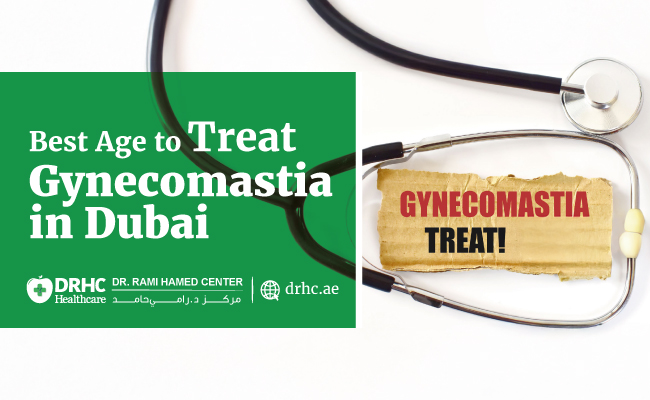
When facing the decision to have hernia surgery, one of the most common questions patients ask is: “Do I need mesh?” It’s a valid concern. You may have heard about mesh from friends, the internet, or media reports—and it’s natural to feel uncertain or even anxious.
At the Dr. Rami Hamed Center (DRHC) in Dubai, we believe that informed decisions lead to better outcomes. In this post, we’ll walk you through what mesh is, why it’s commonly used, when it might not be necessary, and what alternatives may be available.
What Is Mesh in Hernia Surgery?
Mesh is a medical material—usually made of synthetic fibers or sometimes biological tissue—used to reinforce the weakened area where the hernia occurred. Think of it like a supportive patch that strengthens the repair and helps prevent the hernia from coming back.
In modern hernia surgery, mesh is used in the majority of cases because it significantly lowers the chance of recurrence, especially for larger or more complex hernias.
Why Is Mesh So Commonly Used?
Mesh is widely used because it offers important benefits:
- Lower recurrence rates: Studies show that mesh reduces the risk of the hernia returning compared to stitches alone.
- Better long-term durability: Especially in larger hernias, mesh helps provide lasting support.
- Minimally invasive options: Laparoscopic hernia repair often requires mesh to close the defect with minimal tension.
At DRHC Dubai, we use mesh selectively and safely, always tailoring the approach to the individual needs of each patient.
Concerns About Mesh: What Patients Should Know
We understand that some patients are concerned about the use of mesh. Common worries include:
- Will my body reject the mesh?
- Can mesh cause long-term pain or infection?
- Are there any risks of complications later on?
Here’s what we want you to know:
- Most patients tolerate mesh very well.
- Serious complications are rare, especially when the procedure is performed by experienced surgeons using high-quality materials.
- Pain or infection after mesh surgery is uncommon and usually manageable with proper care.
At DRHC, we always review your medical history, allergy concerns, and specific hernia type before recommending mesh. Your safety and comfort come first.
Is Mesh Always Needed?
Not always. For small hernias, especially in younger or low-risk patients, a mesh-free (also called “tissue-based” or “suture-only”) repair may be appropriate.
Mesh may not be necessary when:
- The hernia is small (e.g., certain umbilical or inguinal hernias)
- There is a low risk of recurrence
- The patient prefers a mesh-free approach and understands the risks
- There is a medical reason to avoid synthetic materials
However, mesh-free repairs tend to have a higher recurrence rate, especially for larger or tension-prone hernias. Our specialists at DRHC carefully assess these factors during your consultation.
What Are the Alternatives to Mesh?
- Suture-only Repair: In this approach, the surgeon brings the edges of the tissue together with stitches. It avoids foreign material but may not be as strong for larger or high-stress hernias.
- Biologic Mesh: These are made from animal or human tissue and may be used in select cases (e.g., contaminated wounds or infections). They are absorbed by the body over time.
- Watchful Waiting: In some patients with small, symptom-free hernias, surgery can be safely delayed while being monitored. This option depends on individual risk factors and lifestyle.
Our Related Blogs:
- Is Bariatric Surgery Right for You? Everything You Need to Know
- Types of Weight Loss Surgeries: Gastric Sleeve, Bypass, and More
- What to Expect After Bariatric Surgery: Recovery, Diet, and Results
- Can Bariatric Surgery Help Reverse Type 2 Diabetes?
- 10 Myths About Bariatric Surgery — Debunked by Experts
- Non-Surgical Options for Hernia: Do They Really Work?
- Top Reasons Hernias Recur After Surgery and How to Prevent It
- Hernia Repair Success Rates: What Affects Long-Term Outcomes?
FAQs About Mesh in Hernia Repair
Is mesh safe?
Yes, mesh has been safely used in millions of hernia surgeries worldwide. At DRHC, we use only trusted materials and monitor patients closely.
Will I feel the mesh inside me?
Most patients do not feel the mesh. Any initial tightness or discomfort typically resolves as the body heals.
Can I request mesh-free surgery?
Absolutely. We will explain the pros and cons based on your unique case. Your preferences matter, and we’ll work with you to decide the safest and most effective option.
Consultations and Treatment at DRHC Dubai
If you're considering hernia repair, we’re here to help you understand all your options—including whether the mesh is necessary for your specific condition. Our surgeons at DRHC Dubai have extensive experience with both mesh and mesh-free techniques and will guide you with empathy and clarity.
During your consultation, we’ll review your medical history, perform a physical examination, and discuss the best treatment plan based on your needs and concerns.
Conclusion: Personalized Care for Better Outcomes
Mesh is a valuable tool in hernia repair—but it’s not the only option. The right choice depends on your hernia’s size, location, health factors, and personal preferences. At DRHC Dubai, our mission is to provide you with safe, evidence-based, and personalized care.
We understand that surgery can feel overwhelming—but you're not alone. If you have questions or would like to explore hernia treatment options, including mesh-free approaches, we welcome you to schedule a consultation with our expert team.
Your comfort, safety, and long-term health are our top priorities.
📞 Call Us: +97142798200
📍 Visit Us: Dr Rami Hamed Center, Dubai HealthcareCity
🌐 Website: www.drhc.ae
Topic: General Surgery hernia surgery




.webp)




Leave a comment